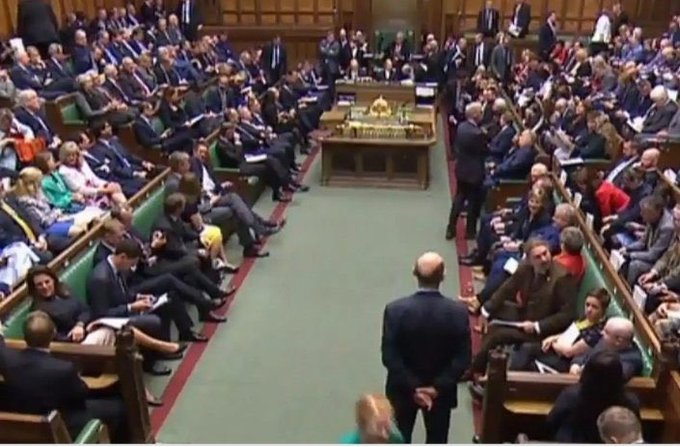Security
UK Parliament to deliberate sanctions against Nigerian Govt officials over #EndSARS protest

The United Kingdom Parliament will today, Monday deliberate over the sanctions against the Nigerian government over human rights allegations during the EndSARS protests and the Lekki shootings.
The UK parliament will sit over a petition signed by 220,118 (the number of those that had signed as at the time of filling this story) individuals in the United Kingdom.
In October, thousands of Nigerians marched in Lagos and other cities to demand an end to the Special Anti-Robbery Squad, or SARS, a police unit accused of extrajudicial killings and abuses through the EndSARS
The government announced the unit had been disbanded, but many Nigerians are skeptical, as officials have promised an end to the unit and its alleged abuses before.
In a reply to the petition signed by Foreign, Commonwealth & Development Office, the parliament expressed concerns with the violence during the protests and promised to debate the petition.
The reply read in part, “Parliament will debate this petition. Parliament will debate this petition on November 23 2020. You will be able to watch online on the UK Parliament YouTube channel.
“On July 6, the British Government established the Global Human Rights sanctions regime by laying regulations in Parliament under the Sanctions and Anti-Money Laundering Act 2018.
“The Foreign Secretary set out in full the scope of the UK’s new Global Human Rights sanctions regime. He announced the first tranche of designations, as well as the Government’s approach to future designations.
“This sanctions regime will give the UK a powerful new tool to hold to account those involved in serious human rights violations or abuses. The sanctions regime is not intended to target individual countries.
“It will allow for sanctions to be imposed on individuals and entities involved in serious human rights violations or abuses around the world.
“We will continue to consider potential designations under the Global Human Rights sanctions regime. It is longstanding practice not to speculate on future sanctions designations as to do so could reduce the impact of the designations. The UK Government will keep all evidence and potential listings under close review.”
The reply also explained the different ways that the UK government had urged the Nigerian government to consider human rights violation cases during the protests.
The reply stated that the Foreign Secretary urged the Nigerian Government to investigate cases of human rights violations and brutality by security forces on October 21.
It stated that the Minister for Africa, Geoffrey Onyeama and the British High Commissioner in Abuja reiterated these messages at different times.
“We welcome President Buhari’s decision to disband the Federal Special Anti-Robbery Squad (FSARS) and the establishment of judicial panels of inquiry to investigate alleged incidents of brutality by the security services.
“They must investigate all incidents, including in Lagos, fully. The Minister for Africa tweeted on October 29 stressing the importance of the police and military cooperation with the panels. He raised this, and the need for the panels to urgently start investigations, when he spoke to the Governor of Lagos state on November 11.
“The UK Government will continue to work with the Nigerian Government and international and civil society partners to support justice, accountability and a more responsive policing model in Nigeria.
“We will continue to push for the Nigerian security services to uphold human rights and the rule of law, investigate all incidents of brutality, illegal detentions and use of excessive force, and hold those responsible to account.”
kindly donate to the work we do using our interim PAYPAL https://www.paypal.me/NewsWireNGR






